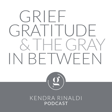
Resilience Beyond Grief: A Mother's Journey Through Loss and Legacy with Shannon Spruill
Shannon Spruill, a native of Brooklyn, New York, now resides in Buffalo, NY. For the past 37 years, Shannon Spruill has been happily married to Esau Spruill Jr. Together, they have been blessed with three sons named Derek, Brian, and Patrick. She has achieved academic success, graduating Suma Cum Laude from Bryant and Stratton College with a bachelor's degree in Business Administration and obtaining a master's degree in Computer Information Systems from Boston University. For the past 26 years, Shannon has been an Account Executive at Ingram Micro.
Despite her successful career, Shannon felt a calling to pursue her lifelong passion for writing. Although fiction was her initial desire, she decided to share her personal journey instead. Her first book, "My Reflection in the Mirror," was released on December 1, 2010. It delves into the personal demons she had to overcome, with the hope of inspiring and empowering other women.
Tragedy struck on October 4, 2013, when Shannon lost her son Brian in a devastating automobile accident. Instead of succumbing to darkness, Shannon found solace in her faith and began helping other parents who have experienced the loss of a child. She also published her second book, "The Shattered Mirror: Picking up the Pieces," which explores her journey of coping with her son's death. Combining both books, she published a revised edition titled "Tribulation to Victory: Birth of a Queen" in April 2018. This book became a bestseller, and Shannon is currently working on her 14th book.
In addition to her writing career, Shannon is the CEO and Founder of Parents Pushing Past Their Grief Inc. Parents Pushing Past Their Grief Inc. mission is to provide support, comfort, and resources to parents who have experienced the devastating loss of a child. Shannon wanted to create a safe and understanding community where parents can find solace, share their stories, and connect with others who have gone through similar experiences.
Shannon's journey is one of resilience, faith, and a commitment to helping others. Her accomplishments as an author, entrepreneur, and community advocate are a testament to her strength and determination.
Website: www.ppptg-inc.org
Facebook: www.facebook.com/findinghopeinthemidstofheartache
Youtube: www.youtube.com/channel/UC0DNYXYzmvbaDm0ASs5RsJg
Linkedin: www.linkedin.com/company/parents-pushing-past-their-grief-inc/


